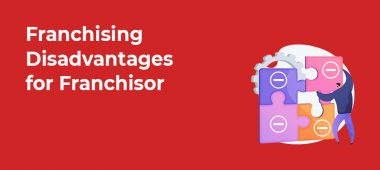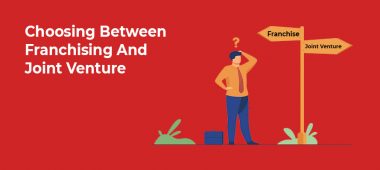Once a company has successfully established itself in a market, usually the next goal is to grow its business. Business expansion is an extensive and expensive task and more often than not, comes with high risk. To expand the business, one needs to explore new markets both in the domestic and international industries.
Entering new markets involves assessing whether your product will receive the demand in the area and what will be the cost of running operations in a new space. A company can proceed with expansion to a new market when they see potential profits.
While the product or service line is established, you still need to carry out the physical and managerial building of the business from scratch. You need to acquire licensing, recruit reliable staff, conduct training, and market products to the target customers. If you’re expanding internationally, you might even have to create brand awareness in the market.
There are multiple methods by which one can expand its business. Organic expansion, Joint Ventures, Partnering, Franchising, and Buying a company are some ways that can be used to explore new markets and expand the business. These strategies vary in the amount of required capital, time, and risk involved. The market entry mode that you choose will also determine your level of involvement in the new market.
If you are not loaded with capital to invest in opening company branches in other markets, then franchising could be the apt market entry strategy for your business. Franchising refers to the licensing of small businesses to sell the merchandise and use the trademark of the franchisor, at the franchisee’s market. The franchisee pays royalty, management fee, and share of profits in return for using the brand’s reputation.
If you’re looking forward to expanding your business and are confused between market entry methods, then you need to assess your resources and preferences concerning the growth strategy. To help you come to a decision, we have compiled a list of eight features that make franchising a smart market entry strategy.
Low Capital Requirement
When buying another company or building your office, you need to spend millions of dollars from your pocket. However, when selling a franchise you receive a royalty from the franchisee instead.
The franchisee is responsible for the task of setting up the business, employing staff, and reaching the target audience. The land procurement, licensing, and other capital needs are also met by the franchisee. While you are supposed to offer assistance in training and management, the franchisor has nothing to do with capital acquisition. So if you are low on budget and wish to expand, you won’t have to spend money to open a franchisee.
The franchisee will help you enter the market and increase your brand awareness, along with providing a share in the profits. Isn’t that a win-win?!
No Need To Adjust To The Market
Culture, etiquette, and the choices of people from one country differ from another. When entering a market you need to thoroughly understand the lifestyle and way of thinking of your target audience. This is a challenging task that many multinationals are unable to carry out efficiently. Products that sell exceptionally well in your country, may not hold much demand in another. This can lead to losses in the expansion of your business.
When you sell the franchise of your company to willing small businesses, you can leave the task of accomodating the services and work culture under the market, to a local businessman from the country. While it might take you months or years to understand the market, they will already be prepared to run the business. Hence, by franchising your company you can eliminate the problem of understanding, and adapting to a foreign market.
Low Risk
When franchising your company, you provide your business idea or trademark to the franchisee. It is the franchisee’s job to find land, capital, staff, and licenses for the same. If the franchisee has to take a loan from the bank or other sources to meet these requirements, then the liability will lie solely on the shoulder of the franchisee. The debt of the franchisee cannot be shifted to the franchisor.
As specified by the rules and regulations of the franchising agreement, franchise owners are not managers working for the franchiser. They are independent businessmen and any liability that may arise from the operations, has to be borne by the franchisee. It’s more or less a no-strings-attached business partnership, where brand recognition is traded for monetary returns.
Prevents Excessive Workload
While setting up a new business is a tiring task, what’s even more hassling is settling up operations and managing them. You need to consult lawyers and different government departments to acquire a license. You need Human Resources to start a business including managers and executives. You have to train them, monitor their work, and ensure employee satisfaction. You also need to adjust to market conditions and fluctuating demand and supply.
These tasks can substantially increase your workload. For example, if you use the organic expansion strategy by building offices in different markets within the umbrella of your own company, then you will have to create teams to explore the market, carry out projects in different markets, and monitor the work at established offices. In a matter of time, you will be exploring twenty markets and managing twenty more firms at the same time! You would need to employ a dozen employees on each job and control everything. Does that sound hard, or what?
However, franchising is simpler. It enables you to leave the responsibility of managing the business on the franchise buyer and concentrate on promoting and managing franchise sales.
Cash-in On Your Brand Recognition
If you have strong brand recognition abroad, then franchising is the best way to bank upon those potential customers that you cannot reach directly.
Most business models use continual investment to engage in marketing to convert potential customers into sales. While brand recognition always plays an important role in increasing sales, it is often not the most significant factor behind the company’s success.
However, a franchising company’s most valuable asset is its brand recognition. Without risking failure or investing in global marketing campaigns, they can increase sales in a market that they do not understand. Franchisors receive a royalty for lending their brand name and product to the franchisee!
Success Promotes Success
Your success will inspire people looking to start a business to buy your franchise. They will bank upon your reputation and successful product or service, to meet their goals and become successful.
The success of your franchisee will not only lead to increased profits for you but will also increase your brand recognition. As the number of franchisees increases, more people will be interested in buying a franchise. It is a continuing cycle of success, that leads to the complementary growth of both franchisor and franchisee.
Faster results
Whether franchising is the right entry strategy for your business will depend upon the industry that you serve and the popularity and versatility of your products and services. However, if your company fits the bill, franchising can help you expand to multiple markets within a small period.
McDonald’s, the top-ranked franchising company has franchisees in over 100 countries across the globe. There are more than 35,085 franchised locations globally, with 655 McDonald’s franchisees in New York City alone. The scope of franchising as a market entry strategy is quite evident in its success.
While the initial stages where your franchise is bought by a couple of buyers might be slow, but once the franchise business takes off, you will be signing agreements with multiple buyers in the same city.
Master Franchising
Franchising is an expansion strategy that comes with less workload and more results. However, the idea of selling franchises to businesses in a market that you don’t understand can be hard to digest.
To avoid risking brand reputation, the franchisor sets certain rules and regulations that have to be followed by the franchisee. They conduct thorough financial and background checks to ensure that they are getting in an agreement with a reliable franchisee.
It can be difficult to sit in one country and get into agreement with willing franchise buyers from another. This is why the master franchising option is available to franchisors. Master Franchising Agreement enables a franchise of the franchisor to sell more franchises in their market. It further takes the steam off of the franchisor and enables amplified control over the market.
Conclusion
Franchising is a reliable market entry strategy, but should only be selected if it meets your requirements and industry. While it offers less risk and workload, it also restricts control over your franchise. However, it has proven to be a simple and efficient way to enter multiple new markets without digging a big hole in the company’s resources.














